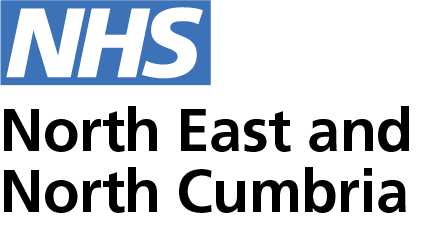"If you want to go fast, go alone, if you want to go far, go together" – Dr Alexandra Kent, Medical Director of NENC ICB and GP Partner of Priory.

Being a woman in 2024 is as challenging now as it has ever been, priorities, roles and responsibilities have not just changed but expanded. Women have challenges around both their personal and professional lives, juggling between the two to find the right balance.
I have two young children and work full-time meaning my children spend time in nursery and after school clubs which is a source of constant 'Mum guilt' for which I carry.
In terms, of my professional journey, I studied medicine later than many, after school I went to Oxford University, achieving a degree in Human Sciences. After studying, I really wanted to see the world so, I spent the next two years travelling while working as a Scuba diving instructor.
I was really looking forward to coming back to the UK to begin my career promptly. I wanted work in an industry which provided a level of variety, flexibility, and meaningfulness and where I could make a real difference.
The subject of Medicine ticked all the boxes for me and so I applied to the post graduate medicine course at the University of Southampton. Following this course, I completed my post graduate training returning back to the North East.
Trying to manage both your professional and personal life is a challenge for most people, I have tried to find a way to be as efficient as possible while at work and try not to take it home with me after the day is done.
Personally, by being able to be at home to put my children to bed and say goodnight really does mean the world and makes all the difference too.
We make the most of the quality time that we have by reading stories and hearing about the adventures that my children have gotten up to that day. We always keep weekends and holidays as a priority for quality family time.
Manging the tensions and 'mum guilt' from working full-time with a family with young children is hard. I am really very fortunate that I have two incredibly supportive workplaces that understand when I have to take time off to look after my children whether it is due to sickness, a parents evening, or the annual nativity play.
In terms of the 'Mum guilt' that I previously mentioned, I'm not really sure if it will ever go away. However, there are so many ways in which I know my children and family as a whole are very fortunate to have the lives that we do which is very important to remember.
Staying along the lines of the topic of the role of women in today's society as well as the importance of raising awareness this International Women's Day around women's health, my one piece of advice that I wish to share with you is that you should: "Spend just enough time worrying about the future. Enjoy the now and make the most of the opportunities that come your way. There are many routes to an end point so enjoy the journey. There is no need to rush to the end!"
As a woman in a position of leadership, I feel it is crucial to talk about these challenges and tensions faced by working parents freely. Flexibility in the workplace is essential if we want to get the best out of our people. This where programme and projects such as the Women's Health Strategy and the implementation of Women's health hubs in the region has brought more of a focus to the subject of inclusion and flexibility not just for our patients but importantly our colleagues as well.
The women's health strategy focuses on and provides resource to the health issues faced by women today. We absolutely need to look after and make more of a focus around the various needs of women.
It's very difficult to know that women leave their workforces due to issues with their health, whether that is related to menopausal symptoms, mental health related issues or problems with their maternity journey.
When we are in a time of encouraging women to attend their cervical screenings yet are unable to, due to a lack of suitably timed appointments, able to provide them with the opportunity to attend or questioning the severity of need, if a women is needing to take days off with period problems is simply unacceptable.
There is so much that can be done to manage women's health problems in so many ways. It really is wonderful that the Women's Health Strategy draws attention to this and enables us to work on getting women access to the care they require.
Women have so much to bring to the table, it is vital that we do not let health issues which are classed as manageable be a barrier towards this.
"We have so many challenges facing us today, imagine how much further we can go if we truly embrace inclusion."
